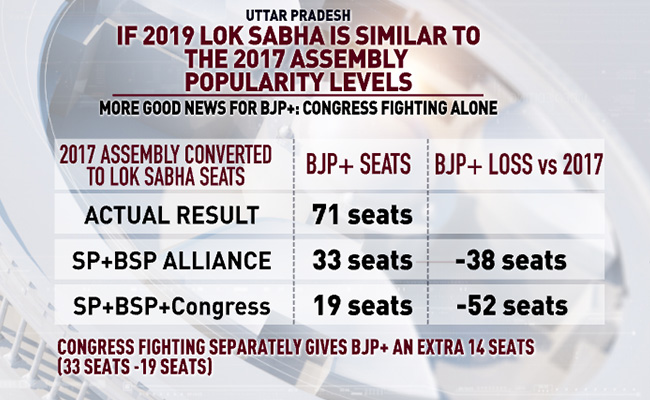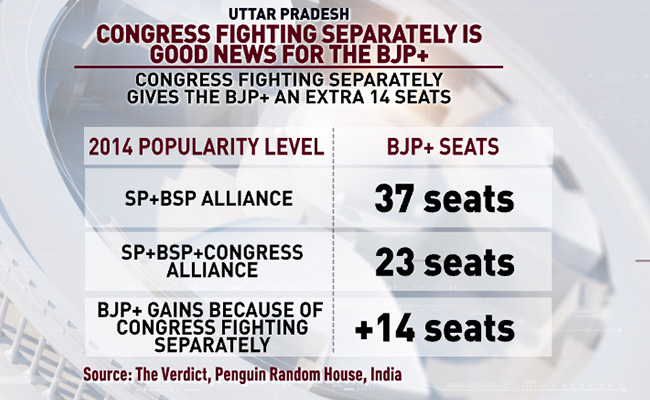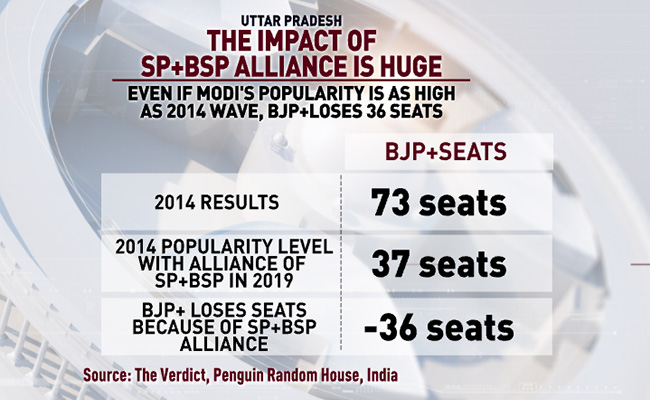In the second episode of 'The Countdown', Dr Prannoy Roy, Shekhar Gupta, Dorab Sopariwala and NDTV's Kamaal Khan and Alok Pandey analyse whether the Akhilesh Yadav-Mayawati alliance in Uttar Pradesh will have a major impact on the BJP's poll performance in the Lok Sabha elections. They will also analyse the impact the SP-BSP alliance will have had if the Congress would also have joined the alliance.
Apart from this, Dr Prannoy Roy also looks into the policies of sanitation in Uttar Pradesh under the BJP and whether free LPG cylinders, another BJP flagship policy had a desired effect on-ground or not.
Here are the highlights for the second episode of 'The Countdown':
#TheCountdown | "Those who say 'chowkidar chor hai', it seems are lying": UP Deputy Chief Minister Dinesh Sharma (@dsdcmofficeup)
- NDTV (@ndtv) March 19, 2019
Watch episode 2 of our 5-part series on Uttar Pradesh: https://t.co/Fbzw6mR9Q5 and NDTV 24x7 pic.twitter.com/4ghUrcDzcg
#TheCountdown | "BJP is a big party. They know management": Samajwadi Party chief @yadavakhilesh to NDTV
- NDTV (@ndtv) March 19, 2019
Watch part 2 of our 5-episode series on NDTV 24x7 and https://t.co/Fbzw6mR9Q5#LokSabhaElections2019 #ElectionsWithNDTV pic.twitter.com/rMZJ8Ae7s3
#TheCountdown with @PrannoyRoyNDTV : How will the Akhilesh Yadav-Mayawati alliance impact BJP?
- NDTV (@ndtv) March 19, 2019
Watch episode 2 of our 5-part series on https://t.co/Fbzw6mR9Q5 and NDTV 24x7#LokSabhaElections2019 pic.twitter.com/wtqWlvInoW
#TheCountdown | "There is an undercurrent in favour of Congress": @pramodtiwari700 to NDTV
- NDTV (@ndtv) March 19, 2019
Watch episode 2 of our 5-part series on Uttar Pradesh here: https://t.co/Fbzw6mR9Q5 and NDTV 24x7 pic.twitter.com/xRPjLlMWAI
Shekhar Gupta: BJP's principle is win, as long as you're single largest party in the alliance. Look at Congress and UP. If others got nasty, they can create a real problem there.
NDTV's Kamaal Khan: A lot of local leaders feel, post-Pulwama, opposition space has shrunk, issues have been diluted, focus has been shifted.




